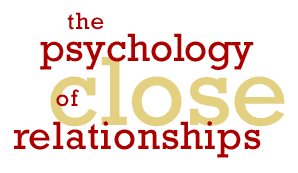Interpreting Your Responses
The odd-numbered items -- trust, caring, honesty, etc. -- have been found to be the most central features to research subjects' definitions of love. The
even-numbered items -- scary, dependency, uncertainty, and so on -- have been found to be peripheral, that is, not so important,
according to research conducted by Canadian psychologist Beverley Fehr.
Fehr asked university students to identify the key features of love. She found that the top ten features (the odd-numbered items)
characterized love as a matter of deep, secure friendship; least common were the bottom ten features (the even numbers), which
describe love as an unstable, emotional experience. Even sexual passion, which many would consider a basic part of romantic love, was
found to be peripheral.
There are no right or wrong answers in this exercise. The point is not whether you "should" agree with Fehr's subjects, who may be quite
different from you, after all. Rather, the point is that individuals' concepts of love vary widely, suggesting there is no single
agreed-upon concept of what love is or should be in our larger culture.
As we'll see in this session, some psychological research has sought to identify the qualities of a common, shared experience
called "love." Others have discarded the notion of one Love in favor of many loves, different types of love or components
that can be mixed and matched to make up our very different experiences.
Love's History -- Sacred, Sensual, Dramatic
Ancient Greek mythology has many gods and goddesses cavorting with each other, not only for sex but also love. The supreme god Zeus
might seduce mortal women but he also claimed he protected them from the wrath of his (understandably) jealous wife Hera, sometimes by
transforming the hapless maidens into trees or inanimate objects. In so doing, Zeus displayed some minimal compassion as well as obvious passion for his paramours.
The Greek philosopher Plato (428-348 B.C.E.) claimed human love derived from the fact that the precursors to mortal men were "double"
bodies, beings with two heads, sets of arms and legs, created as pairs of lifelong companions, some male, some female, and some a
pairing of male with female. When these cozy bonds were destroyed by the gods to punish mankind for some infraction, lovers were cursed,
forever searching for his or her "other half." For Plato, love was a quest for one's soul mate, the one person on earth with whom the
searcher belonged. This desire to be with one's rightful companion, emphasizing friendship and commitment, has always been at the center
of our concept of "platonic love."
Love Becomes Sensual
The early Romans equated passionate love with madness, advising that romance be avoided if one hoped to lead a responsible, successful
life. An exception to this admonition was the poet Ovid (43 B.C. - 17 C.E.), whose lengthy poem Ars Amatoria ("The Art of Love")
offered a "seducer's manual" of techniques designed to arouse another's passion. One notorious example was Ovid's advice to take
one's mistress to see the gladiators disembowel each other, and when she was most aroused and excited by the grisly sights, seize the
opportunity to pounce (a tactic in keeping with a current theory of love as we shall see). Ovid's celebration of erotic passion proved to be politically incorrect and was cited as a
major reason for the prudish Caesar Augustus's decision to banish the poet, who died in exile.
Love Becomes Sacred.
Judeo-Christian monotheism preached a God whose central relationship with humankind was based not on blind obedience and worship but love.
Believers were instructed to show their faith by learning to love one other, altruistically and unconditionally. In the early Middle Ages,
the Crusades took many influential and powerful Western European nobles and knights to the Holy Land. In their battle to drive out the
Moslem "infidel," many of these Christians found themselves entranced by Eastern ideals of intimate love as "ennobling," as well as by the
provocative segregation of women from men within harem walls. Forbidden fruit is always the most attractive.
Back at home, veteran Crusaders talked and sang of love as an enticing yet sacred quest, in which lovers were separated not by
harem walls but by pledges of virtue and chivalric honor. The songs of the troubadours, sung in French and other Romance languages,
provided the basic formula for what came to be known as "romantic love: physical passion, mental obsession, emotional longing
and tragic destiny.
Love Becomes Selective.
By the 18th century, in England, what had once been an aristocratic pastime had trickled down to commoners as a fantasy about mate selection:
romantic love was not necessary for marriage but how pleasant it would be! In the New World, young Americans were even free to choose
their mates on the basis of feelings rather than lands or family money. Thus began a great experiment in society, encouraging people
to make permanent commitments on the basis of what were usually transitory emotional attachments.
Love Becomes Drama.
The formula still works today. Whether it's the story of Lancelot and Queen Guinevere, the Duke and Duchess of Windsor, or Meg Ryan and
Russell Crowe, we sympathize with lovers who are separated by unfeeling laws or politics. Unlike the original troubadours' songs,
however, modern romances are more popularly successful with the "happy ending" of marriage. It may be impractical to base a real-life
marriage on arousal, longing and pain. But those elements make for a better story than pragmatism, friendship and economic considerations.

For each of the following 10 items, indicate whether you consider it to be true or false, in general.



